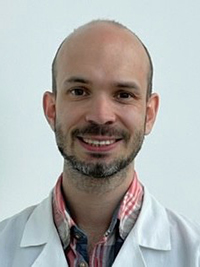
UT MD Anderson Cancer Center
Identifying synergistic combinations to improve KRAS-targeted therapy response in PDAC
Overview
Aim: Treatment / Therapy
Pancreatic ductal adenocarcinoma (PDAC) is the most common form of pancreatic cancer and is the third-leading cause of cancer-related death in the US. A large majority of patients are diagnosed with already advanced disease, a stage with a 5-year survival rate of less than 5%. Targeted therapies, i.e., therapies tailored to the mutations and characteristics of a patient’s tumor, have so far failed in substantially improving the treatment outcomes in pancreatic cancer. Mutations in an oncogene called KRAS are found in a large majority (>90%) of pancreatic cancer tumors, and these mutations have been shown to drive the formation and growth of tumors. While developing effective therapies targeting KRAS have the potential to significantly improve treatment outcomes, efforts to develop KRAS drugs have failed for over four decades. Recently, a multitude of promising KRAS-targeting drugs have been developed and are in various stages of clinical testing. However, data indicates that not all PDAC patients benefit from KRAS-targeted treatment and that many patient tumors will eventually develop resistance and continue growing despite aggressive treatment. It is currently unknown what mechanisms play the most important role in driving resistance to KRAS-targeted treatment and how resistance can be overcome.
We hypothesize that there is a set of unknown factors that drive resistance to KRAS-targeted therapy and that there are combinations of drugs that can be used to target these factors to improve response to KRAS-targeted therapy and overcome resistance. Specifically, we aim to identify drug compounds that can be combined with a new drug called RMC-6236 that targets several versions of mutated KRAS to improve outcomes. To identify these factors, we will first use a technique that turns on genes in a programmable way, called CRISPR activation. Using CRISPR activation, we will screen cultured pancreatic cancer cells treated with RMC-6236, as well as tumors generated in models of pancreatic cancer, to identify factors that drive resistance to treatment. Unlike conventional CRISPR screening that identifies important genes by turning them off, CRISPR activation screening identifies important genes by turning them on and seeing which genes give the cells an advantage, in this case resistance to KRAS drug. Once we have identified factors that drive resistance, we will use drugs that target these factors in combination with KRAS inhibitor and test the combinations in patient tumor cultures. For this step we will use so called Patient-Derived Organoids; small tumor aggregates that can be grown in the lab and are more similar to patient tumors than conventional cancer cell cultures. Using this approach, we hope to be able to identify promising drug combinations that we can rapidly move into clinical testing in the future.